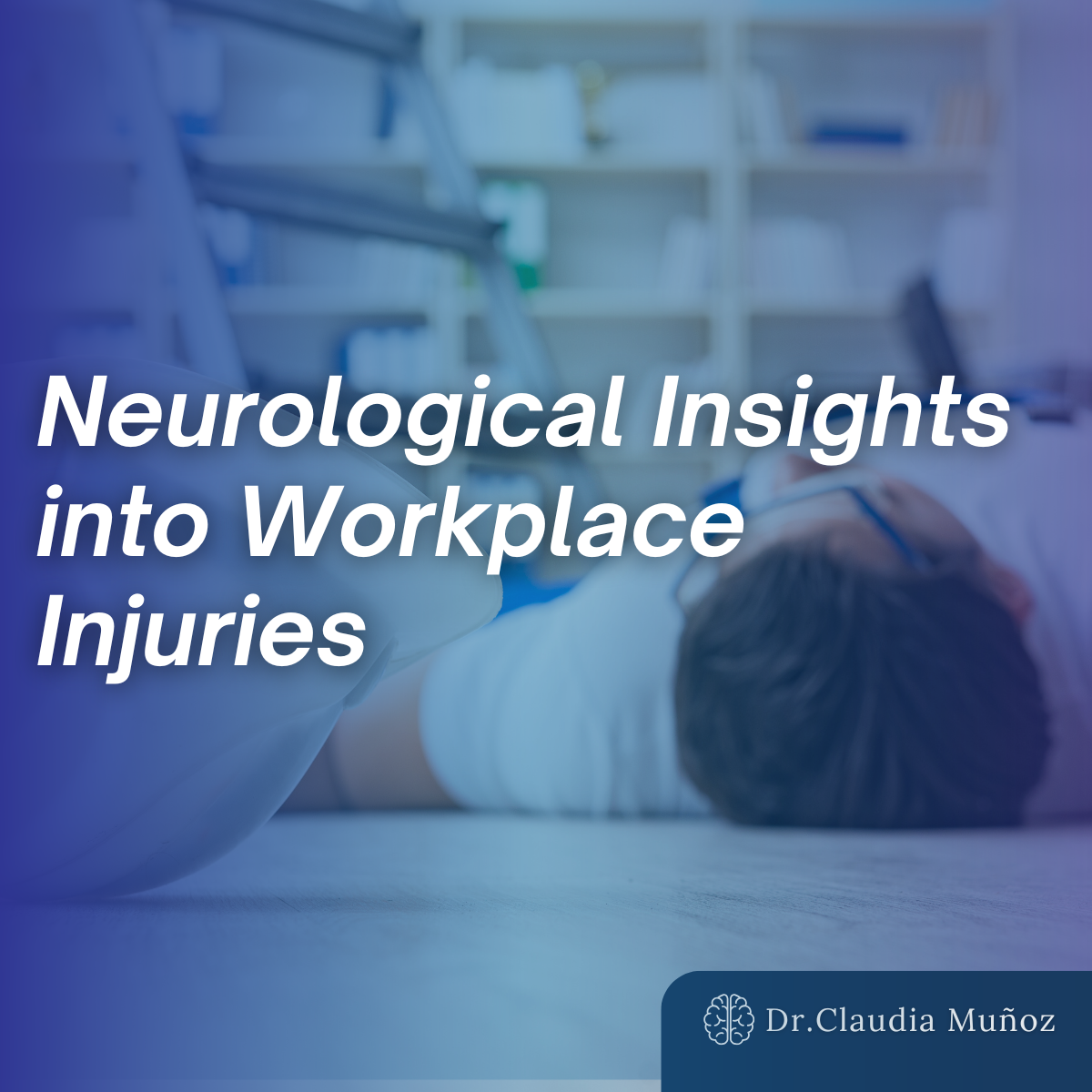Neurological Insights into Workplace Injuries
Workplace injuries are a common source of personal injury claims, and many involve far more than just orthopedic damage. Neurological injuries, especially those that are subtle or delayed in presentation, are often overlooked, misdiagnosed, or underestimated in their long-term impact.
As a neurologist with clinical and medico-legal experience, I want to highlight how workplace injuries can result in neurological damage and why these injuries require thorough investigation, documentation, and expert interpretation in the legal process.
Understanding Workplace-Related Neurological Injuries
Certain types of injuries in the workplace can directly or indirectly affect the nervous system. These may occur due to:
Falls from height or slips causing traumatic brain injury (TBI)
Blunt force trauma to the head or neck
Heavy machinery accidents
Electrocution or exposure to toxic substances
Repetitive motion or overexertion
Prolonged stress or trauma exposure (linked to functional neurological symptoms)
Often, symptoms do not manifest immediately, or are initially dismissed as minor. However, even mild TBIs or concussions can evolve into chronic cognitive, emotional, or physical dysfunction if not properly managed.
Common Neurological Consequences of Workplace Injuries
Attorneys should be alert to neurological symptoms that may indicate underlying brain or nerve injury, such as:
Persistent headaches
Memory loss or concentration issues
Dizziness or balance disturbances
Numbness, tingling, or weakness in limbs
Changes in personality, mood, or sleep patterns
Seizures or post-traumatic epilepsy
Functional Neurological Disorder (FND) — symptoms without structural findings, often misunderstood
These conditions can significantly impact an individual’s ability to return to work, maintain productivity, or function independently — factors that are critical in establishing damages and long-term impact.
The Value of Neurological Expertise in Legal Cases
In many personal injury cases, neurological symptoms are reported but not thoroughly assessed. An expert neurologist can:
Evaluate the nature and extent of neurological damage
Clarify whether symptoms are trauma-related or due to pre-existing conditions
Support causation analysis through clinical correlation and imaging interpretation
Provide detailed documentation of functional limitations and long-term prognosis
Serve as an expert witness to strengthen case credibility before insurance or in court
Early neurological evaluation not only supports medical recovery, it also ensures your client’s case reflects the full scope of injury and impairment.
Workplace injuries often involve more than what is visible on the surface. Neurological injuries may be hidden, delayed, or dismissed, yet they carry profound implications for your client’s quality of life.
Interested in discussing a case or learning more about neurological evaluations in personal injury claims?
Feel free to reach out or submit your inquiry using the contact form below.

